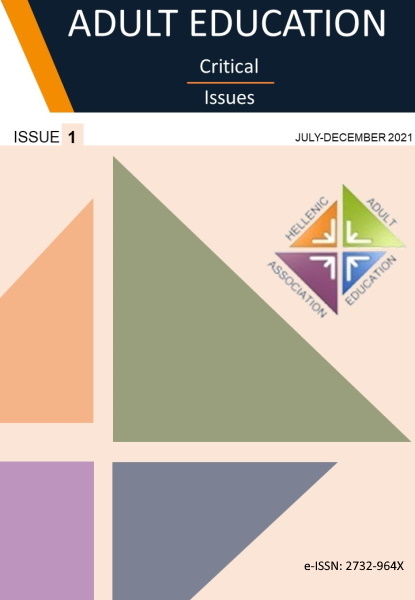Employment and occupational prospects and Lifelong Learning in Greece
Resumen
The present paper addresses employment and occupational prospects in Greece, in the period 2011-2022, highlighting the dynamic, stagnant and declining occupations and it also addresses employment and occupational prospects in the near future (2022-2030). The role that Lifelong Learning can play in an environment of abrupt changes is also discussed. The study reveals that in the period 2011-2022, the total employment rates in Greece increased by 1.0%, with the creation of 43,002 new jobs. A large number of jobs was created for general and keyboard clerks, health professionals and information and communication technology professionals but on the other hand, a large number of jobs were destructed. Therefore, the employment and occupational prospects in Greece in the near future require further attention. The estimates presented in this paper concern the time period 2022-2030, in a two-digit occupation code and they are derived from the application of the Oxford model (Oxford Global Economic Model - GEM), which is managed by NKUA, in the framework of its eLearning program. In this time period, according to relevant estimates, the total employment rates in Greece are expected to decrease by 3.4%, with a loss of 143,998 jobs in total. This negative development, that is expected to take place in an environment of increased production (estimates of the Oxford model), indicate a paradox that is a period of economic growth which is not followed by the creation of new jobs (jobless growth). In light of this evidence, employment and occupational prospects and Lifelong learning are interlinked and often considered a favored topic for researchers, practitioners, policy makers and politicians. As occupations, dynamic, stagnant or declining, include certain tasks and skills, their evolution (and mainly in the dynamic ones) provide the necessary information areas in which long term strategy of Lifelong Learning should target. However, there seems to be a distance between policy, strategy and action. The paper suggests a more careful mapping of the job market, the lifelong learning programmes and the trainees’ prospective profiles. It also addresses the need to focus on those who rarely participate in lifelong learning programmes and are considered to also be the dropout rates from formal educational processes.
Article Details
- Cómo citar
-
Tsiboukli, A., & Efstratoglou, A. (2024). Employment and occupational prospects and Lifelong Learning in Greece. Adult Education Critical Issues, 3(2), 28–37. https://doi.org/10.12681/haea.35747
- Sección
- Articles

Esta obra está bajo una licencia internacional Creative Commons Atribución 4.0.
Authors who publish with this journal agree to the following terms:
- Authors retain copyright and grant the journal right of first publication with the work simultaneously licensed under a Creative Commons Attribution License that allows others to share the work with an acknowledgement of the work's authorship and initial publication in this journal.
- Authors are able to enter into separate, additional contractual arrangements for the non-exclusive distribution of the journal's published version of the work (e.g., post it to an institutional repository or publish it in a book), with an acknowledgement of its initial publication in this journal.
- Authors are permitted and encouraged to post their work online (e.g., in institutional repositories or on their website) prior to and during the submission process, as it can lead to productive exchanges, as well as earlier and greater citation of published work (See The Effect of Open Access).







